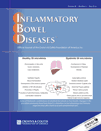Cesarean section and offspring's risk of inflammatory bowel disease: A national cohort study†
Supported by a grant from the Danish Medical Research Council (No. 271-05-0700), Aase and Ejnar Danielsen's Foundation (No. 104988), Dagmar Marshall's Foundation, and General Manager Kurt Bønnelycke and Wife's Foundation.
Abstract
Background:
Intestinal bacteria have been implicated in the etiology of the common inflammatory bowel diseases (IBD) ulcerative colitis and Crohn's disease. Because delivery by cesarean section disturbs the normal bacterial colonization of the newborn's intestine, we determined the risk of IBD according to mode of delivery.
Methods:
A register-based national cohort study of 2.1 million Danes born 1973–2008. The effect of mode of delivery on IBD incidence in the age-span 0–35 years was estimated by means of confounder-adjusted incidence rate ratios (IRRs) with 95% confidence intervals (CIs) obtained in Poisson regression analysis. Information on mode of delivery was obtained from the Danish Medical Birth Registry and cases of IBD were identified in the Danish National Patient Registry 1977–2008.
Results:
During 32.6 million person-years of follow-up, a total of 8142 persons were diagnosed with IBD before age 36 years. Cesarean section was associated with moderately, yet significantly, increased risk of IBD at age 0–14 years (IRR 1.29, 95% CI 1.11–1.49), regardless of parental disposition to IBD. Assuming causality, an estimated 3.2% of IBD cases before age 15 years were attributable to cesarean section.
Conclusions:
Rates of IBD with onset in childhood are moderately increased after birth by cesarean section but underlying mechanisms remain unclear. Even if the association is causal, the possible impact of increasing cesarean section practices on the overall burden of IBD in childhood is small. (Inflamm Bowel Dis 2011;)




